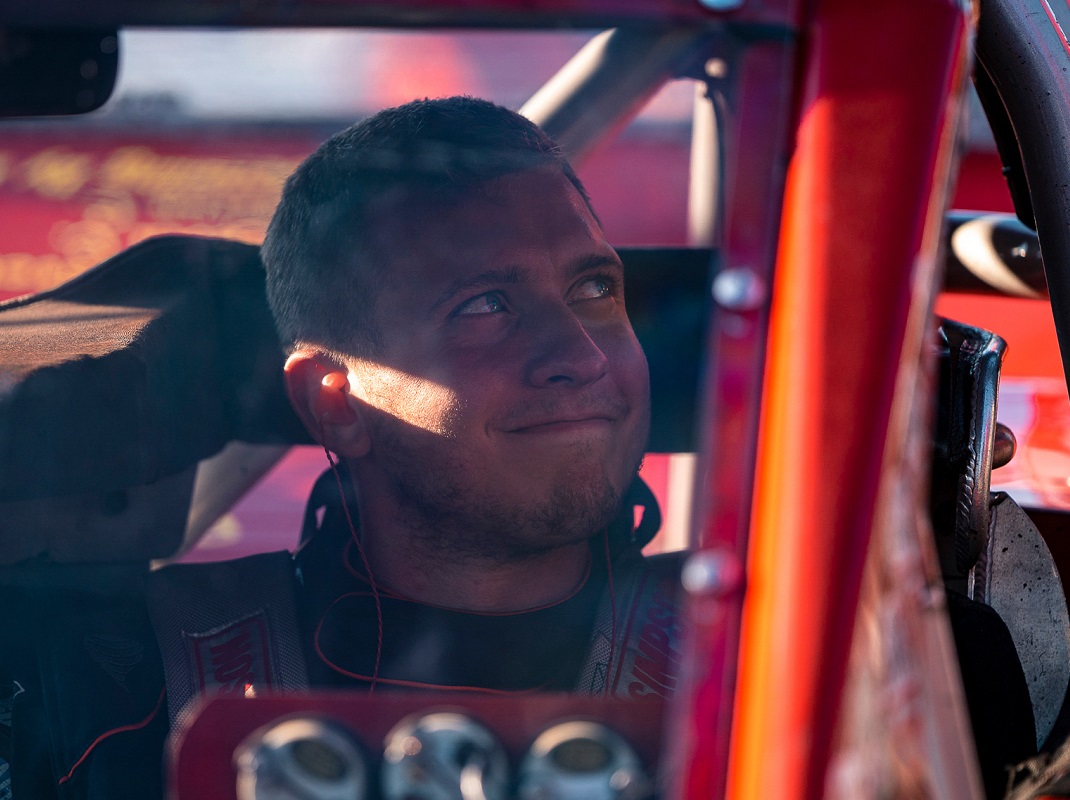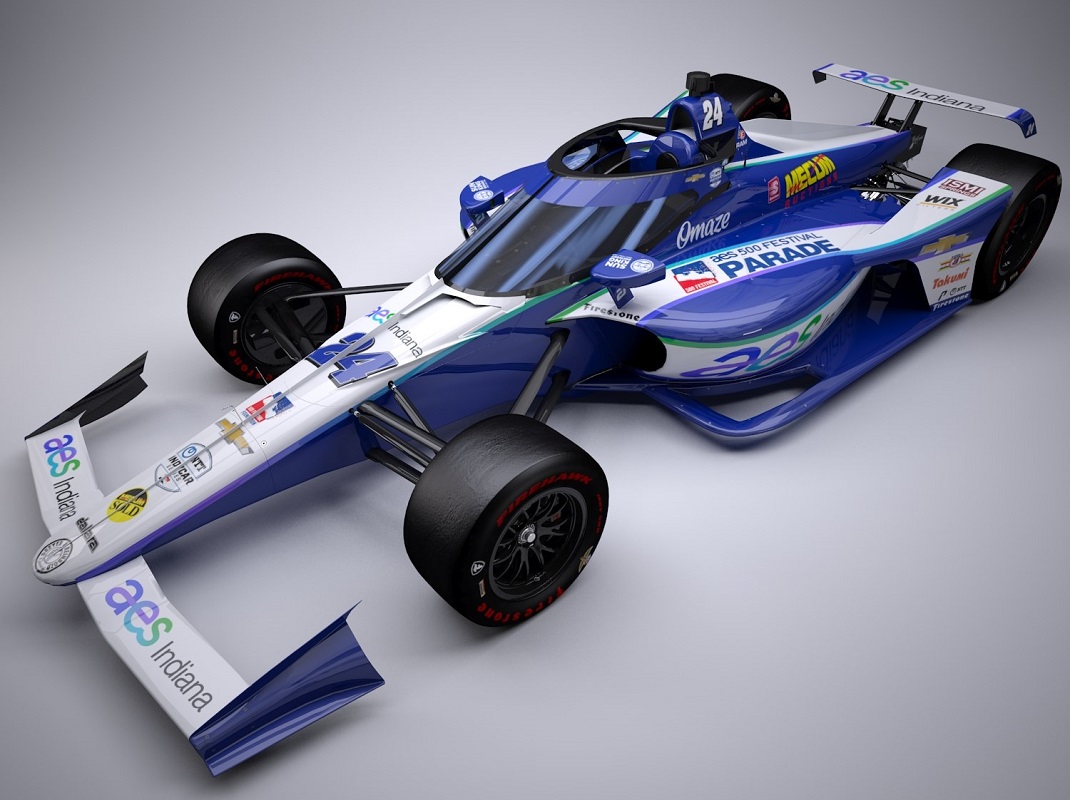February 25, 2014 — Blog by Managing Editor Jacob Seelman — photo courtesy Wikipedia – Looking at today, I can’t fathom how it’s been 21 years since we lost Davey Allison.
I guess as you move on in sports and in life following a tragedy, and you begin to heal, life and time begins to move faster again, and suddenly, it’s been so long, even though there are days where the wound feels as fresh as yesterday.
Today would have been Davey’s 53rd birthday. I doubt he would have still been racing today, but deep down I know Davey would have still been involved with the sport he loved.
Davey was an icon, one of the first “young guns” who became a star in NASCAR’s top echelon, and enamored fans with his charm and his driving talent. He, above all other NASCAR drivers of his era, delighted and influenced children and teenagers with his warm personality off the track and his devout lifestyle.
Allison, 32, died on July 13, 1993 of massive head injuries he sustained 16 hours earlier in the crash of a helicopter he was piloting. He was attempting to land in a parking lot in the infield of Talladega Superspeedway, and was within an inch of touching down when the chopper went into a violent rise and tailspin. Ultimately, things just didn’t go right in the end. That Davey left us that day, and that Alan Kulwicki (his peer and friend) left us earlier that year, was part of a greater plan. That I have faith in. It just leaves me with a hollow feeling when I ask why it had to happen when it did.
I haven’t been the only one asking that question over the years. Everyone has asked, from the top all the way down. Mario Andretti, the open wheel master and patriarch of the Andretti family, once said of Davey’s death, “It is beyond my comprehension. If ever there was goodness in anyone, it is in that family. The whole family. They are the example of goodness.”
You can’t describe Davey without using the words goodness or smile. He always had that brilliant grin on his face at the racetrack, and even on the bad days when something would break or Davey would be caught up in some accident, he would have that eternal optimism that carried him to the next event. You couldn’t bring him down and you couldn’t keep him from trying all out, every lap, every race. When that light was lost to us, it created a shadow that cast a pall over the fan base that at times, it seemed, would never be able to be fully lifted.
As hard as the loss was to swallow, though, the sheer fact of how much NASCAR might have been different had we not lost Davey is even more staggering.
I don’t truly believe Davey’s NASCAR career had peaked when he was taken from us — he had 19 Cup Series wins, including the 1992 Daytona 500, a race his father Bobby had won three times, even beating Davey to do it in 1988. He had won NASCAR’s All-Star night twice back-to-back in ’91 and ’92, beating out Kyle Petty in a thrilling finish under the lights that will be imprinted on the memories of NASCAR fans and historians forever. He had won at Talladega three times. He had won what is now the Coca-Cola 600 in 1991. He was easily the favorite for the championship going into the 1993 season after coming so close in ’92.
‘He could have easily rewritten the record books in the years to come’, fans said.
That he was already as accomplished as he was and was only gaining prestige and popularity was one of the reasons the nation’s racers and fans were so shocked by his death. That was a reason for mourning.
Davey always said, from the time he entered the sport, “If I get killed in a race car, I’m gonna die with a smile on my face.” Unfortunately, Davey wasn’t granted that end. In a way, I feel like that may have made it an easier pill to swallow. We all always say when referencing Dale Earnhardt Sr., that Dale “died happy, doing what he loved to do”, and that helped us to heal. We didn’t have that with Davey, and I feel like that’s part of the reason why the wound remained so fresh for so many years after his death.
I never got the chance to see Davey race; he died the year before I was born, but from growing up watching old videos, hearing the stories my family told about him during their days as part of the Jasper-sponsored No. 55 team, and knowing some of his driving statistics, Davey would have been grinning like a fool watching Sunday’s Daytona 500 and how competitive it was. Heck, he probably would have looked at a Rick Hendrick or a Richard Childress and said, “Put me out there, I can take ’em!” Davey was a master at NASCAR’s biggest and fastest superspeedways, and as good as anyone (except for maybe Dale Sr.) in the draft.
In the ARCA Series alone, Davey won four times at Talladega, his home track, and added the three Cup wins to that total as well. His 500 triumph gave him eight career restrictor plate wins across the two series, and at the time of his death, no one was better than Davey with a plate on the car. Could he have won the 500 now, in arguably the most-competitive era of NASCAR ever? We’ll never know, but he sure would have put on a show trying.
Davey died in the middle of the ’93 season and was posthumously awarded the International Race of Champions (IROC) championship crown after Terry Labonte piloted Davey’s car to a high enough finish in the final race of the four-event series to clinch the title. That honor only cemented Davey’s status among the elites in all of motorsports, and also showed the kind of respect his fellow competitors had for him. Everyone knew Davey, and everyone appreciated Davey and what he could do behind the wheel of a stock car. And everyone banded together to ensure that the Alabama native would achieve the honor that he was bound for that year. There was no question who was the best of the field that year, it was Davey Allison. And though we lost him too soon, we were reminded of how the racing community pulls together as one to honor their fallen comrades, and this time, Davey was honored on the track in the most respectful and incredible way possible.
Of course, when you remember Davey, you can’t go without mentioning the famed “Alabama Gang”, of which he, family friend Red Farmer, who was with Davey when the helicopter went down, Neil Bonnett, and Davey’s father Bobby and uncle Donnie were all a part of. Over the years, tragedy has struck that tight-knit group, first with Davey and later with Neil Bonnett, but they have remained as tough, as strong, as competitive and as tight as ever. They have survived, just as we have, and just as NASCAR has. Though the fabric may have been forever changed, the cloth itself has survived.
And as we have survived and healed, talk has arisen, just as it did with the number 3, of reviving Davey’s No. 28 to the Cup level again one day. Granted, the circumstances are different, because Robert Yates used the No. 28 for years after Davey’s death, and Davey did not pass in competition, but the legacy that number carries with the Allison name is extensive.
Both Davey and Bobby raced the 28 in their careers, and the family history that could be and is told through the number 28 is not only amazing to look back on, but tells the story of the middle era of NASCAR in the sense that Davey embodied the picture, the face that NASCAR was trying to put on their brand around the time that we lost him.
Davey’s widow Liz was first against the revival of the 28 to NASCAR’s top level, but said on Friday before activities for the Daytona 500 that now, she would be able to accept its return to the Cup Series.
“It would be big,” she said to FOX Sports while on-site at the Daytona International Speedway. “Certainly, early on, that wasn’t something I wanted to see. In fact, I was one of those who wanted to see the No. 28 just kind of put away for a little while until the timing felt right. And as we know, that didn’t happen. And so there were some, I guess, negative feelings on my part early on about that. And I realize now that now, after more than 20 years, it was just a time that it was very painful and any reminder at that point was just too much.”
“I feel like when the time comes – and we’ve talked so much about the timing being right with the No. 3 car – then it does feel right. But I feel it has to be the right situation. I don’t think just throwing the 28 out there and not having any type of – I don’t know if ‘connection’ is the right word – but without having some meaning behind it, it would not feel right. I feel like that is not necessarily something we’d jump on board and support, but if it were the right situation, absolutely.”
Davey’s father Bobby is in agreement with that sentiment, saying that it would be “OK with him” if the number came back. Davey’s cousin Justin is coming up through the ARCA Racing Series ranks and could be a candidate for the number, as could be Davey’s 21-year-old son Robbie. However, the Allisons have all said that they would only want one of their family to bring the number back “if they wanted to be in it”.
In my eyes, I feel that just as we’ve done with Austin Dillon and the number 3, that bringing back the 28 to the racetrack would again allow us to revisit the legacy of a talented driver, loving father and friend, and true life example who provides so much for the next generation of fans and drivers to learn from. They broke the mold when they made Davey Allison, but I hope for the years to come, we and those after us can keep learning from the pieces left behind.
As I remember Davey Allison on this day, I think of a quote that his grandmother Kittie gave just days after the helicopter crash and I read years later as I looked into the history of Davey’s life and his tragic death.
“You have to go on and accept it,” she said of the accident. “You can’t ask why. Someday we might know. You’ve got to say, like Davey said, ‘When my time comes, I’m gonna go,’ and he was very philosophical about that right along.”
Even before his death, Davey said to many reporters and friends he spoke with that all that’s really important is “to leave this earth knowing we’ve done our best.” No matter why or how, I know in my heart that Davey Allison died knowing that he had done just that. And knowing that, how can we not find some sense of peace in the heartache?
So today, I don’t ask myself why anymore. I simply remember Davey for what he was, an amazing race car driver who, while we lost him before his peak, left us with some pretty spectacular memories and finishes that will always be remembered in motorsports lore. And I try to live my life doing my best at every turn, just as Davey would have wanted all of us to do.
Godspeed Davey Allison. Your fans, family and friends have not forgotten.



